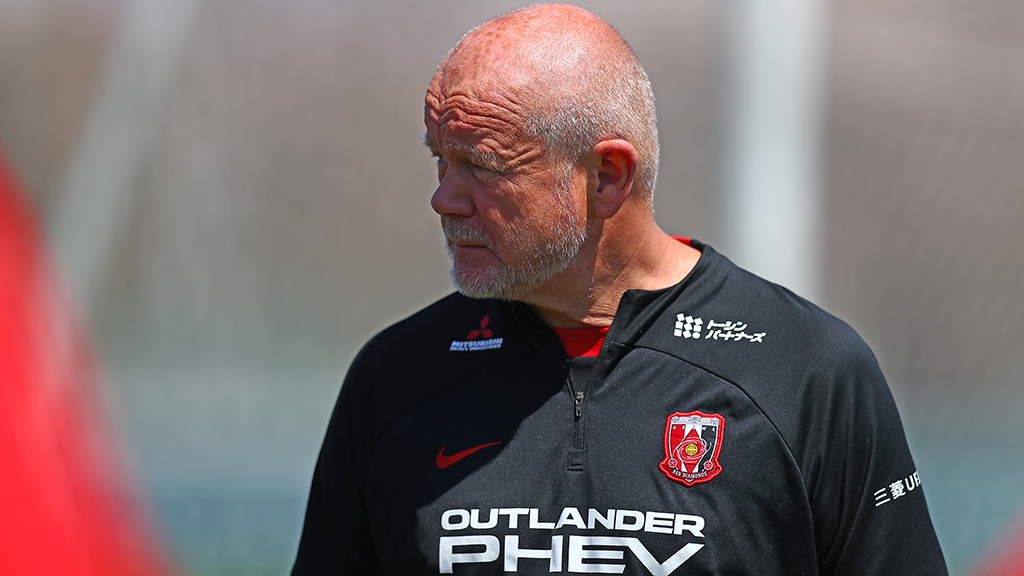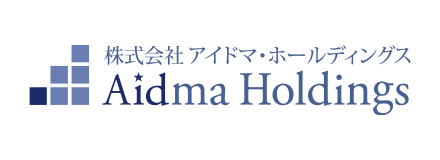NEWS
「チャンスメークの数と得点が良くなっている。守備面の強さを保つこと」ペア マティアス ヘグモ監督(定例会見 4/10)
10日、ペア マティアス ヘグモ監督の記者会見がオンラインで行われ、12日(金)に三協フロンテア柏スタジアムで行われる明治安田J1リーグ 第8節 柏レイソル戦に向けて意気込みを語った。
(鳥栖戦後、「練習でやっていることが90分出せるようになった」という言葉があったが、具体的に最も改善されてきたと手応えを感じることは?)
「我々の哲学を元にプレーしているところが毎週、前進できていると思っています。毎週、戦術的ピリオダイゼーションに基づいたトレーニングを行っていますが、そのトレーニングに全員が慣れてきたということもあると思います。そしてチームで良くなっていることはチャンスメークの数と得点だと思います。それは練習でも見られていますし、公式戦でも見られるようになりました。そして相手の背後のスペース、裏に抜ける動きがウイングでもインサイドハーフでもより多く見られるようになってきました。そういったところからチャンスをつくることができています。守備では選手同士の距離感も良くなってきていますし、強度も上がってきていると思います。もちろん、まだまだ伸ばせるところはたくさんあると思います」
(レッズで指導を始めて3ヵ月ほど経ったが、実際に一緒に過ごしてみて日本人選手の特徴として感じることや日本人選手を伸ばすために工夫していることはあるか?)
「日本人選手と一般化することは難しいと思いますが、まずレッズに来て初日からアプローチしていることは、練習を通じて常に集中し続けていることでした。ヨーロッパと日本の差がどういったところにあるかといえば、もしかしたらジムの文化かもしれません。ジムでそれぞれが補強するというところだと思いますが、そこには選手一人ひとりの違った状況もあります。そして我々は練習でも試合でも強度を上げようとしていますが、そのためにもジムは必要だと思います。ジムでトレーニングすることによって怪我の予防にもつながります。選手たちの技術のレベルは非常に高いと思います。姿勢も素晴らしいです。そして性格も私はとても気に入っています。私自身も彼らと仕事をすることに非常に高いモチベーションを持っていますし、毎日少しずつでも成長しようという話を最初からしていましたが、それが見られるようになってきています。また、この前の試合後の会見でも言いましたが、最初からチームのコンセプトに非常に忠実に取り組んでくれています」
(コンセプトに忠実ということは日本人の特徴として聞くが、そこに縛られすぎてしまったりアイデアや思い切りが足りなかったりすると聞くこともある。そういった点はどう考えるか?)
「以前も少しこの話をしたことがあると思いますが、選手たちを見ればチームコンセプト、自らの成長、どういうプレーをするかということを議論し合って決めたりしていますので、彼らも責任を持ってそういったところに参加しています。チームの構造はありますが、自らが考えてプレーすることによってクリエイティブな部分も出てくると思う」
(鳥栖戦は中盤の3人も前線の選手もポジションを自由に動かして良い結果につながったと思うが、それは一方でカオスというか整理されていない状態になってしまうこともあると思う。用意している構造と選手たちの自由な発想のバランスをどう取って、どう結果につなげようと考えているのか?)
「構造とカオスの話が出ましたが、質問の意図はよく理解できます。重要なのは周りとの関係性だと思います。たとえば(伊藤)敦樹も裏に抜けるプレーが増えてきました。我々の構造をベースとしながらも、インサイドハーフのポジションから裏へ抜ける、あるいは中央に寄っていって10番のようなポジションを取ってから裏に抜けることもできています。(渡邊)凌磨も状況を見ながら、まずは構造をベースにしながら外から行く、あるいは中から行くプレーができています。鳥栖戦に出場した石原ヒロ(広教)も前に駆け上がっていって、1対1で仕掛けることによって相手のバランスを崩すことなどを行っていました。サミュエル グスタフソンもJリーグに慣れてきて、ポジション取りに関して、より高いところに行くのか、少し下がるのかということが良くなってきていると思います。周りを見ながら今どこにいるべきかということを判断しながら行っています」
(戦術的ピリオダイゼーションを取り入れることの最大のメリットはどういうものだと考えているのか?戦術的ピリオダイゼーションによってレッズにどういうことをもたらせると考えているのか?)
「このコンセプトは数年かけて発展しているものです。長い期間のデータをベースに、そして経験を元に1週間の練習の中でストレングス、スピード、持久力の刺激を入れるというものです。フィジカル的にも戦術的にも選手たちを教育する一つの方法です。戦術的ピリオダイゼーションを使いますと、安定した高いレベルの持続可能なトレーニングができるようになっていきます。これはレッズに来た当初から行っていますが、もちろん個別で負荷を調節しなければいけませんし、調節しながらも全体の負荷が前の月と比べると上がっていくような流れにしています。最初は少し怪我人が出るということもありましたが、そこは日々コントロールしようとしています。これを続けていって、来年の6月に米国で行われる(FIFA)クラブワールドカップではさらに高まったフィジカル的、戦術的、そして技術的な質をお見せできればと思っています」
(監督は「強度を上げる」とよく話しているが、監督が求めている強度はデータに表れるのか?たとえばスプリントの回数を見るとチーム平均数のJ1リーグ1位は次の対戦相手である柏であり、レッズはそこまで高くない。そういったスプリントの数をどう見ているのか?あるいは強度を考える上でどういったことを重視しているのか?)
「高強度ランニングが最も注目するデータです。時速25キロメートル以上、時速27キロメートル以上、時速30キロメートル以上の数字を見ます。各ポジションでその数値を上げようとしているところです。スタートのところから見ても、そのデータはチームとしても個別で見ても伸びてきています。柏は非常に組織化された4-4-2で非常にコンパクトなところから、前に出るときもスライドするときも高い強度の動きができるチームだと思います。ブロックをしっかりと形成して、90分を通じて動き続けることができるチームだと思います」
(今シーズン初の連勝を目指す柏戦ではどういう点が重要になってくると考えているのか?)
「まず一つは守備面の強さを保つことです。ハイプレスでもミドルプロックでもローブロックでもそれを見せたいと思います。そしてゾーンで守備をしていますが、そこからしっかりと相手に寄せることもできるようになっていますし、それをするための距離感も良くなっていると思います。鳥栖戦後の会見でも言いましたが、前線のプレスがはっきりすればするほど後ろの選手にとって読みやすい状況をつくることができます。あとは選手の関係性をさらに深めていって、先ほども言った裏へのランニングも多く出すことができればと思っています。そういうところから松尾(佑介)のチャンスも生まれましたし、敦樹がいい形をつくることもできました。ウイング、インサイドハーフ、そしてストライカーがそういう動きをできればと思っています。また、鳥栖と比べれば生まれるスペースも別のところなので、我々がそれを認識して、そこを使うことができればと思っています。また、ベンチから入る選手がしっかりといいインパクトを残していることが続いていますので、それは今後も見たいです」
(かつてレッズのコーチを務め、ボルシア・メンヒェングラートバッハでスカウトを務めるオーベ フリント氏が来日しているが、何か話したのか?)
「お話はしました。2日前にご夫妻と食事をしましたし、彼も練習場を訪れていますので、話をしています」
(どんな話をしたのか?)
「彼がノルウェーで指導者として仕事をしていたころから知っています。ボルシアMGで長年、仕事をしています。サッカーの全体的な発展の話をしました。また、Jリーグの文化や発展の話もしました」
(レッズから誰か連れていきたいという話はなかったか?)
「今のところそれはないと思います(笑)」
(逆にボルシアMGの選手が欲しいという話はしなかったか?)
「それは分かりません(笑)。しかしボルシアMGは日本人選手とのいい経験を積んでいるクラブです」
(鳥栖戦で大久保智明選手がゴールを決めた後にベンチに向かっていき、結果的にチアゴ サンタナ選手が受け止めた。本当はマティアス監督のところに行きたかったようだが、それは知っているか?)
「去年までの3つのシーズンで彼はリーグで1得点ずつ決めてきています。今年はすでに1ゴールを決めていて、チャンスメークもしているという話を彼にしました。練習にも復帰し、フィジカル的なコンディションも上がってきていて、1対1や運動量を発揮できるようになってきています。選手が点を取って喜ぶ姿を見るのは非常にうれしいことですし、我々はそのために仕事をしているのだと思います。大きな怪我から戻ってきて、試合でも結果を残せたので、彼にとっても非常にいい状況だと思います」
(大久保選手は昨年まで素晴らしいプレーをしながらゴールやアシストがつかなかった。その理由として守備で頑張って攻撃のスタート位置が低かったことに問題があったかもしれないが、一方で前に残っているときにチームが失点してしまったら悲しいし、それで負けたらファン・サポーターを悲しまることになるとも言っている。マティアス監督はウイングの役割と献身性のバランスをどう考えているか?)
「現在のサッカーでは両方必要だと思います。昔いた、いわゆるラグジュアリープレーヤーはもう存在しません。ウイングであってもストライカーであっても守備の仕事があります。試合の中で60メートル、70メートルのスプリントをたくさん出さなければならないので、練習の強度も上げています。トモは運動量も持久力も持っていますので、それができる選手だと思います。また、練習でゴールを決めたいという気持ちを持ってやらなければいけません。それぞれのポジションにも特徴がありますし、それぞれの技術もありますので、それを生かしながらいかにゴールを決めるかという文化をつくろうとしています。そして、そのためにはフィニッシュの練習もしますし、ゲーム形式の練習でもゴールを求めています」
(マティアス監督同様、モルテン カルヴェネスコーチやマリオ エドゥアルド チャヴェスコーチ兼分析担当も日本に来て3ヵ月ほど経つが、マティアス監督が彼らを信頼している理由は?)
「モルテンコーチとはここ数年たくさん話をしてきました。プレーの仕方、選手のこと、お互いヨーロッパにいましたが、たくさん話してきました。彼がいたFKボーデ/グリムトと私がいたBKヘッケンで共通するものはたくさんありました。だからサッカーの見方が似ていると思います。また、練習のディテールをしっかりと見抜くことができる指導者の目を持っている人だと思います。毎日の練習のクオリティーを上げてくれる人です。
マリオに関しては、3年前に私がヘッケンに行ったときはモニターの前でデータを見るだけの分析担当でした。選手たちの成長を促したい、日々成長してもらいたいという話をしましたが、彼をピッチに立たせてそういうところを促すようにしました。彼や前迫(雅人)コーチ、池田(伸康)コーチや林(舞輝)コーチ(兼分析担当)など、それぞれが選手を個別に担当していて、個別のアプローチで成長を促すということも行っています。個別のトレーニングや映像のフィードバックをそれぞれのコーチがアプローチしていますが、それプラス、データの活用が得意ということでマリオには来てもらいました」
【浦和レッズオフィシャルメディア(URD:OM)】
(鳥栖戦後、「練習でやっていることが90分出せるようになった」という言葉があったが、具体的に最も改善されてきたと手応えを感じることは?)
「我々の哲学を元にプレーしているところが毎週、前進できていると思っています。毎週、戦術的ピリオダイゼーションに基づいたトレーニングを行っていますが、そのトレーニングに全員が慣れてきたということもあると思います。そしてチームで良くなっていることはチャンスメークの数と得点だと思います。それは練習でも見られていますし、公式戦でも見られるようになりました。そして相手の背後のスペース、裏に抜ける動きがウイングでもインサイドハーフでもより多く見られるようになってきました。そういったところからチャンスをつくることができています。守備では選手同士の距離感も良くなってきていますし、強度も上がってきていると思います。もちろん、まだまだ伸ばせるところはたくさんあると思います」
(レッズで指導を始めて3ヵ月ほど経ったが、実際に一緒に過ごしてみて日本人選手の特徴として感じることや日本人選手を伸ばすために工夫していることはあるか?)
「日本人選手と一般化することは難しいと思いますが、まずレッズに来て初日からアプローチしていることは、練習を通じて常に集中し続けていることでした。ヨーロッパと日本の差がどういったところにあるかといえば、もしかしたらジムの文化かもしれません。ジムでそれぞれが補強するというところだと思いますが、そこには選手一人ひとりの違った状況もあります。そして我々は練習でも試合でも強度を上げようとしていますが、そのためにもジムは必要だと思います。ジムでトレーニングすることによって怪我の予防にもつながります。選手たちの技術のレベルは非常に高いと思います。姿勢も素晴らしいです。そして性格も私はとても気に入っています。私自身も彼らと仕事をすることに非常に高いモチベーションを持っていますし、毎日少しずつでも成長しようという話を最初からしていましたが、それが見られるようになってきています。また、この前の試合後の会見でも言いましたが、最初からチームのコンセプトに非常に忠実に取り組んでくれています」
(コンセプトに忠実ということは日本人の特徴として聞くが、そこに縛られすぎてしまったりアイデアや思い切りが足りなかったりすると聞くこともある。そういった点はどう考えるか?)
「以前も少しこの話をしたことがあると思いますが、選手たちを見ればチームコンセプト、自らの成長、どういうプレーをするかということを議論し合って決めたりしていますので、彼らも責任を持ってそういったところに参加しています。チームの構造はありますが、自らが考えてプレーすることによってクリエイティブな部分も出てくると思う」
(鳥栖戦は中盤の3人も前線の選手もポジションを自由に動かして良い結果につながったと思うが、それは一方でカオスというか整理されていない状態になってしまうこともあると思う。用意している構造と選手たちの自由な発想のバランスをどう取って、どう結果につなげようと考えているのか?)
「構造とカオスの話が出ましたが、質問の意図はよく理解できます。重要なのは周りとの関係性だと思います。たとえば(伊藤)敦樹も裏に抜けるプレーが増えてきました。我々の構造をベースとしながらも、インサイドハーフのポジションから裏へ抜ける、あるいは中央に寄っていって10番のようなポジションを取ってから裏に抜けることもできています。(渡邊)凌磨も状況を見ながら、まずは構造をベースにしながら外から行く、あるいは中から行くプレーができています。鳥栖戦に出場した石原ヒロ(広教)も前に駆け上がっていって、1対1で仕掛けることによって相手のバランスを崩すことなどを行っていました。サミュエル グスタフソンもJリーグに慣れてきて、ポジション取りに関して、より高いところに行くのか、少し下がるのかということが良くなってきていると思います。周りを見ながら今どこにいるべきかということを判断しながら行っています」
(戦術的ピリオダイゼーションを取り入れることの最大のメリットはどういうものだと考えているのか?戦術的ピリオダイゼーションによってレッズにどういうことをもたらせると考えているのか?)
「このコンセプトは数年かけて発展しているものです。長い期間のデータをベースに、そして経験を元に1週間の練習の中でストレングス、スピード、持久力の刺激を入れるというものです。フィジカル的にも戦術的にも選手たちを教育する一つの方法です。戦術的ピリオダイゼーションを使いますと、安定した高いレベルの持続可能なトレーニングができるようになっていきます。これはレッズに来た当初から行っていますが、もちろん個別で負荷を調節しなければいけませんし、調節しながらも全体の負荷が前の月と比べると上がっていくような流れにしています。最初は少し怪我人が出るということもありましたが、そこは日々コントロールしようとしています。これを続けていって、来年の6月に米国で行われる(FIFA)クラブワールドカップではさらに高まったフィジカル的、戦術的、そして技術的な質をお見せできればと思っています」
(監督は「強度を上げる」とよく話しているが、監督が求めている強度はデータに表れるのか?たとえばスプリントの回数を見るとチーム平均数のJ1リーグ1位は次の対戦相手である柏であり、レッズはそこまで高くない。そういったスプリントの数をどう見ているのか?あるいは強度を考える上でどういったことを重視しているのか?)
「高強度ランニングが最も注目するデータです。時速25キロメートル以上、時速27キロメートル以上、時速30キロメートル以上の数字を見ます。各ポジションでその数値を上げようとしているところです。スタートのところから見ても、そのデータはチームとしても個別で見ても伸びてきています。柏は非常に組織化された4-4-2で非常にコンパクトなところから、前に出るときもスライドするときも高い強度の動きができるチームだと思います。ブロックをしっかりと形成して、90分を通じて動き続けることができるチームだと思います」
(今シーズン初の連勝を目指す柏戦ではどういう点が重要になってくると考えているのか?)
「まず一つは守備面の強さを保つことです。ハイプレスでもミドルプロックでもローブロックでもそれを見せたいと思います。そしてゾーンで守備をしていますが、そこからしっかりと相手に寄せることもできるようになっていますし、それをするための距離感も良くなっていると思います。鳥栖戦後の会見でも言いましたが、前線のプレスがはっきりすればするほど後ろの選手にとって読みやすい状況をつくることができます。あとは選手の関係性をさらに深めていって、先ほども言った裏へのランニングも多く出すことができればと思っています。そういうところから松尾(佑介)のチャンスも生まれましたし、敦樹がいい形をつくることもできました。ウイング、インサイドハーフ、そしてストライカーがそういう動きをできればと思っています。また、鳥栖と比べれば生まれるスペースも別のところなので、我々がそれを認識して、そこを使うことができればと思っています。また、ベンチから入る選手がしっかりといいインパクトを残していることが続いていますので、それは今後も見たいです」
(かつてレッズのコーチを務め、ボルシア・メンヒェングラートバッハでスカウトを務めるオーベ フリント氏が来日しているが、何か話したのか?)
「お話はしました。2日前にご夫妻と食事をしましたし、彼も練習場を訪れていますので、話をしています」
(どんな話をしたのか?)
「彼がノルウェーで指導者として仕事をしていたころから知っています。ボルシアMGで長年、仕事をしています。サッカーの全体的な発展の話をしました。また、Jリーグの文化や発展の話もしました」
(レッズから誰か連れていきたいという話はなかったか?)
「今のところそれはないと思います(笑)」
(逆にボルシアMGの選手が欲しいという話はしなかったか?)
「それは分かりません(笑)。しかしボルシアMGは日本人選手とのいい経験を積んでいるクラブです」
(鳥栖戦で大久保智明選手がゴールを決めた後にベンチに向かっていき、結果的にチアゴ サンタナ選手が受け止めた。本当はマティアス監督のところに行きたかったようだが、それは知っているか?)
「去年までの3つのシーズンで彼はリーグで1得点ずつ決めてきています。今年はすでに1ゴールを決めていて、チャンスメークもしているという話を彼にしました。練習にも復帰し、フィジカル的なコンディションも上がってきていて、1対1や運動量を発揮できるようになってきています。選手が点を取って喜ぶ姿を見るのは非常にうれしいことですし、我々はそのために仕事をしているのだと思います。大きな怪我から戻ってきて、試合でも結果を残せたので、彼にとっても非常にいい状況だと思います」
(大久保選手は昨年まで素晴らしいプレーをしながらゴールやアシストがつかなかった。その理由として守備で頑張って攻撃のスタート位置が低かったことに問題があったかもしれないが、一方で前に残っているときにチームが失点してしまったら悲しいし、それで負けたらファン・サポーターを悲しまることになるとも言っている。マティアス監督はウイングの役割と献身性のバランスをどう考えているか?)
「現在のサッカーでは両方必要だと思います。昔いた、いわゆるラグジュアリープレーヤーはもう存在しません。ウイングであってもストライカーであっても守備の仕事があります。試合の中で60メートル、70メートルのスプリントをたくさん出さなければならないので、練習の強度も上げています。トモは運動量も持久力も持っていますので、それができる選手だと思います。また、練習でゴールを決めたいという気持ちを持ってやらなければいけません。それぞれのポジションにも特徴がありますし、それぞれの技術もありますので、それを生かしながらいかにゴールを決めるかという文化をつくろうとしています。そして、そのためにはフィニッシュの練習もしますし、ゲーム形式の練習でもゴールを求めています」
(マティアス監督同様、モルテン カルヴェネスコーチやマリオ エドゥアルド チャヴェスコーチ兼分析担当も日本に来て3ヵ月ほど経つが、マティアス監督が彼らを信頼している理由は?)
「モルテンコーチとはここ数年たくさん話をしてきました。プレーの仕方、選手のこと、お互いヨーロッパにいましたが、たくさん話してきました。彼がいたFKボーデ/グリムトと私がいたBKヘッケンで共通するものはたくさんありました。だからサッカーの見方が似ていると思います。また、練習のディテールをしっかりと見抜くことができる指導者の目を持っている人だと思います。毎日の練習のクオリティーを上げてくれる人です。
マリオに関しては、3年前に私がヘッケンに行ったときはモニターの前でデータを見るだけの分析担当でした。選手たちの成長を促したい、日々成長してもらいたいという話をしましたが、彼をピッチに立たせてそういうところを促すようにしました。彼や前迫(雅人)コーチ、池田(伸康)コーチや林(舞輝)コーチ(兼分析担当)など、それぞれが選手を個別に担当していて、個別のアプローチで成長を促すということも行っています。個別のトレーニングや映像のフィードバックをそれぞれのコーチがアプローチしていますが、それプラス、データの活用が得意ということでマリオには来てもらいました」
【浦和レッズオフィシャルメディア(URD:OM)】























